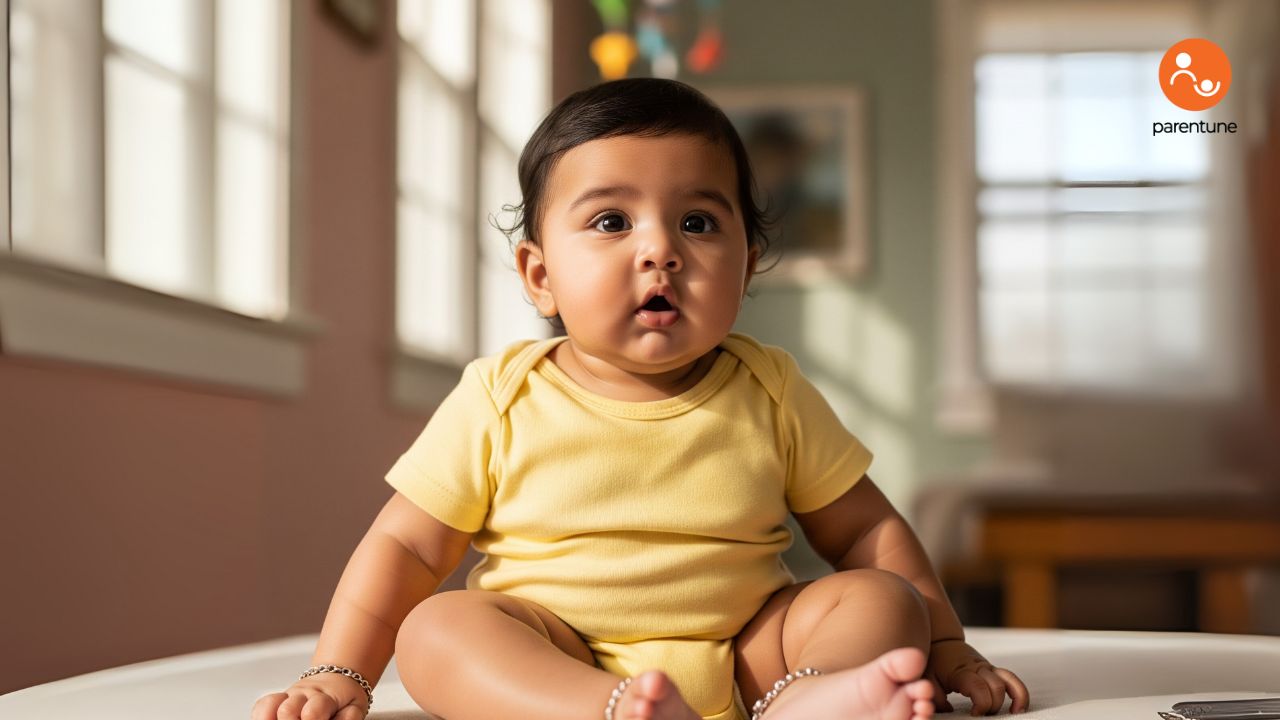daily-tips
How To Get Rid Of Baby Hiccups

Hiccups in babies are common. But that doesn’t make them any less stressful for new parents.
Especially when you're up at 2 AM, watching your newborn's tiny chest bounce with every involuntary sound.
Is it normal? Are they in pain? Should you do something—or nothing?
Let’s walk through what baby hiccups actually mean, why they happen, and how to handle them - calmly, confidently, and without Googling at midnight every time.
Doctor Q&As from Parents like you
Why Do Babies Get Hiccups So Often?
Spoiler: It’s not because they’re cold or upset.
Babies get hiccups because their diaphragms are still figuring things out.
When the diaphragm (a dome-shaped muscle just below the lungs) suddenly contracts, it triggers that familiar hic sound. In babies, this happens more frequently because their nervous systems are still developing.

Add to that:
-
Immature digestive systems
-
Swallowing air while feeding
-
Or even just overfeeding
…and you’ve got the perfect recipe for hiccups.
They’re harmless—but annoying.
And sometimes, they can make feeding and sleeping a challenge.
You may also like to read:
Should You Be Worried?
The short answer? No. But here’s when to look closer.
In most cases, baby hiccups are just a sign of a developing system doing its job.
But here's the test:
If your baby is feeding well, sleeping well, and not showing signs of distress, hiccups are just… hiccups.
However, if you notice:
-
Hiccups always after feeding
-
Arching back or frequent spit-ups
-
Fussiness, crying, or trouble breathing during hiccups
Then it’s worth checking in with your pediatrician. It might point to reflux or feeding issues.
Parentune’s expert community often recommends logging these patterns. That way, when you visit your doctor, you’ve got real-time info to share—right from your lived experience.
How To Get Rid Of Baby Hiccups: 7 Calm And Effective Tips
No gimmicks. Just time-tested, baby-safe strategies.
Here’s what actually works, according to pediatricians and thousands of Parentune moms and dads who’ve been in your shoes:
1. Burp Them Properly—Even Mid-Feed
Sometimes hiccups are triggered by swallowed air.
Don’t wait until the feed is over.
Try this:
-
Pause halfway through feeding
-
Gently burp your baby in an upright position
-
Use slow, rhythmic pats or circular back rubs
It gives the diaphragm a break—and resets the rhythm.
2. Change the Feeding Position
If your baby is gulping too quickly or lying too flat, air can sneak in.
What helps:
-
Hold your baby at a 45-degree angle during bottle or breastfeeding
-
Use a pillow or arm support so they stay upright without strain
This small shift can reduce hiccup episodes dramatically.
3. Use a Slow-Flow Nipple for Bottle Feeding
Sometimes the milk flows faster than your baby can handle.
That causes gulping—and more air.
Switching to a slow-flow nipple gives your baby more control, helping avoid hiccups triggered by overfeeding or swallowing too fast.
4. Offer a Pacifier
Not during hiccups.
Before them.
Sucking helps relax the diaphragm and regulate breathing.
It won’t stop hiccups once they’ve started but it can prevent them if your baby tends to hiccup after excitement or crying.
5. Try a Gentle Tummy Massage
This works best for babies older than a few weeks.
Use your fingers in a soft, clockwise motion around their belly button.
Think of it like a warm-down stretch for the tummy.
It relaxes the abdominal area and can sometimes ease hiccup intensity.

6. Give Gripe Water (If Pediatrician-Approved)
This one’s polarizing.
Some parents swear by gripe water—a herbal mix often used to ease gas and colic.
Others prefer to avoid it altogether.
If you’re considering it, check with your pediatrician first.
Parentune’s expert Q&As can also help decode which brands are safest for your baby’s age and health profile.
7. Just Wait It Out (Yes, Really)
Sometimes the best fix is… patience.
If your baby’s hiccups aren’t causing distress, don’t panic.
Lay them on your chest, talk softly, and let it pass.
Remember—what feels like an emergency to you might just be development in motion.
What You Should Not Do For Baby Hiccups
Sometimes, knowing what not to do is just as important.
Avoid these:
-
No sudden scares (they don’t help and are unsafe)
-
No sugar water (not safe for babies)
-
Don’t force extra feeds to “push it down”
All three can do more harm than good.
When Baby Hiccups Feel Like A Pattern
If hiccups are happening every day, especially during or after feeds, look at the bigger system.
Ask:
-
Is your baby latching well?
-
Are you using the right bottle nipple?
-
Is the environment calm during feeding?
Sometimes tweaking these micro-details leads to big changes.
This is where Parentune’s community comes in clutch.
Ask. Share. Learn from other parents who’ve been in the same sleepless boat.
Final Thought: It’s A Phase, Not A Flaw
New parents often feel pressure to “fix” every quirk their baby shows.
But hiccups?
They’re usually just part of the messy, magical learning curve of new life.
Your baby’s body is figuring itself out.
And so are you.
Give it time. Give yourself grace.
And when in doubt—reach for calm, not control.
Still Unsure? You’re Not Alone
Parentune was built exactly for this.
To help you navigate the little things that feel huge.
With support that’s expert-verified, peer-tested, and emotionally grounding.
From midnight hiccups to milestone questions, there’s a whole community here that gets it.
And gets you.
Be the first to support
Be the first to share
Related Blogs & Vlogs
No related events found.